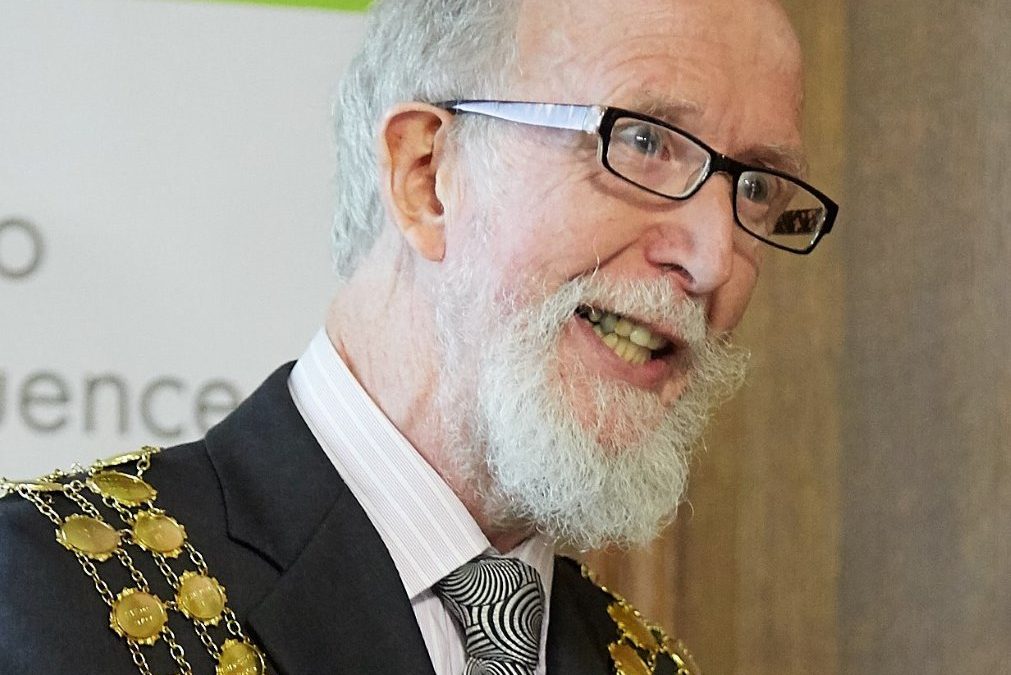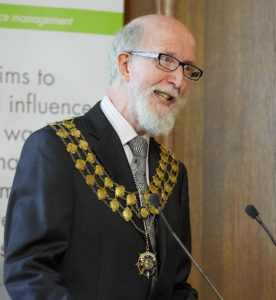30 September, 2018 | Resource and waste management
CIWM President and lifelong waste policy and planning consultant David C Wilson reflects in his September column for the CIWM Journal on the challenges of devising the right policies to charge households for solid waste management services. Of course, we already pay for our solid waste services, but that charge is usually hidden within a wider charge or tax, which in the UK is council tax. Across Europe, many local authorities have been experimenting over the last https://www.babyscanclinic.com/blog/order-generic-levitra/ 20 years with pay-as-you-throw (PAYT) systems, where the charge varies at least in part according to usage. The growing evidence base suggests that PAYT does work, in terms of reducing waste quantities and increasing recycling. But why should local authorities, and ultimately households, pay for all the costs of municipal solid waste management? Particularly in the context of Defra’s forthcoming Resources and Waste Strategy for England, DCW argues for real Extended Producer Responsibility (EPR), with teeth, that will move the full financial burden of collecting, recycling and disposing of packaging and other products in the municipal waste stream from local authorities to the producers and supply chain. If we cannot have PAYT, let us at least have PAYB (pay-as-you-buy).
31 July, 2018 | Publication, Resource and waste management
In his July column, CIWM President David C Wilson makes the case for more investment in resource and waste management as an ‘entry point’ to achieve significant climate mitigation. The sector already has a track record in developed countries, with methane mitigation from landfill since the 1970s, and both methane mitigation and recycling making a major contribution to meeting Kyoto Convention greenhouse gas (GHG) reduction targets between 1990 and 2010. But that early success also means that the IPCC’s 2010 assessment is that the ‘waste’ sector only contributes 3-5% to current GHG emissions. DCW argues that this is a gross underestimate which fails to consider: the current emissions from uncontrolled burning; historical reductions; contributions across the economy from recycling; and waste prevention (particularly food waste). The results suggest that better resource and waste management has the potential for reducing GHG emissions across the World economy by 15, 20 or 25% or even more. Such numbers may be guesstimates, but whatever number we choose to use, the message is still the same. Further investment in this sector, in both developing and developed countries, is a major political priority in order to meet our climate targets.
This article was subsequently re-published by the National Solid Waste Association of India (NSWAI) in their member journal Waste Monitor in July 2019.
31 May, 2018 | Publication, Resource and waste management
Europe and North America have a problem with sustainable recycling. China’s ban on imports has thrown the problem into sharp focus: where are the markets for the materials we are collecting for recycling to meet the targets? And how do local authorities balance their already curtailed budgets as prices for recycled materials plummet? DCW’s May CIWM column explores the history of recycling over the last 40 years, and concludes that our existing policy support measures, focusing on increasing supply rather than demand, are not fit for purpose. He argues that we need to rethink recycling to make it a sustainable foundation for our future circular economy; and makes the case for considering explicitly the embodied social, environmental and technical values alongside the market price.
DCW has for the last three years chaired the Steering Committee for an interdisciplinary research project at the University of Leeds, funded jointly by the Natural Environment and Economic and Social Research Councils, to develop a new analytical framework which considers all four of these dimensions of value. The new CVORR (Complex Value Optimisation for Resource Recovery) tool should facilitate future work in this area.
What sort of solutions are suggested by applying complex value thinking? Current approaches focus on increasing the technical value of the recycled materials, for example through separation at source of individual streams rather than co-mingled materials. They also place the risk of fluctuating prices squarely on local authorities and their contractors; and they in turn plead for Government support for new recycling capacity within the UK. But even with support, such facilities need to compete in a global market, and many UK reprocessing companies have failed over the last decade. The obvious place to look for answers is the companies who place on the market the products which become waste, particularly single trip packaging. The complex value framework would suggest that a fundamental rethink of existing systems for EPR (extended producer responsibility) is required. Producers need to meet all costs for collection, sorting and recycling of their products when they become wastes; and to ensure that markets exist for the recycled materials, for example by taking an ownership stake in the reprocessing facilities and using a minimum % of those recycled materials in their products.
30 April, 2018 | Conference, Publication, Resource and waste management

China’s recent import ban has thrown Western recycling systems into disarray. DCW has participated as CIWM President in three regional open meetings to address the ‘China recycling crisis’. His April column for the CIWM Journal has written up his presentation, providing a personal perspective on how he has seen China’s internal resource and waste management systems develop over the last 40 years. Arguably, its 1970s system could be viewed as an early example of a circular economy. The transition to ‘market -oriented’ operations led to economic growth being prioritised over environmental protection. But the current ‘National Sword’ campaign is just one symptom of a fundamental change, suggesting that, going forward, perhaps China really could lead the world in transitioning to a circular economy.
30 January, 2018 | Awards, Publication, Resource and waste management
DCW’s January column for the CIWM Journal showcases the five shortlisted entries for the Best Reuse Project at the CIWM Sustainability and Resource Awards 2017. As the judge for this category, DCW was inspired by the quality and sheer variety of the five very different reuse projects. He hopes that the projects will inspire others too, as we try to ensure that reuse, sitting near the top of the waste hierarchy, receives the same priority as has been given to recycling.

18 October, 2017 | Awards, Resource and waste management

Professor David C Wilson following his inauguration in Westminster as 2017-18 CIWM President

Professor David C Wilson giving his inauguration speech as CIWM President 2017-18
https://samtech.edu/accutane-treating/
Professor David C. Wilson has been inaugurated as the 102nd President of CIWM, the UK and Irish professional body for resources and waste, at a reception in London. He described solid waste management as one of the key utilities and said that as public sector budgets continue to come under pressure, “we must not lose sight of where we have come from, that the service exists first and foremost to protect public health”. He highlighted the ‘global waste management emergency’, where 40% of the World’s population lacks this basic utility service. He also launched his Presidential report, Making Waste Work: A Toolkit, prepared by WasteAid UK and aimed at helping unserved communities in the least developed countries to help themselves, by developing self-sustaining businesses making useful products for the local market from the resource value in their waste.
Outlining the importance of legislation in the substantial progress that has been made in the sustainable and safe management of waste since the early 1970s, Professor Wilson added that there can be no softening of the regulatory framework. “Two major priorities for CIWM in the UK are to ensure that following Brexit we have continuity of the strong regulations on which the very existence of the waste and resources industry depends, and the continuing fight against waste crime.”
While continuity is important on one hand, DCW went on to talk about the step change in approach to resources and waste that is happening, and he called for a “necessary parallel focus on the 3Rs – reduce, reuse, recycle – and on the shift from the linear model to a circular economy where resource efficiency and productivity is key”. An integrated and inclusive approach will be needed, he said, as well as a balanced set of policy drivers.
Professor Wilson highlighted that, despite the progress that has been made, more than 2 billion people have no waste collection at all and the waste of over 3 billion people is either dumped or subject to uncontrolled burning. This matters: for example, children growing up in households without waste collection have double the rate of diarrhoea and six times the rate of acute respiratory infection; and open burning of waste could double the current, official IPCC estimates of the contribution of methane emissions form landfill of waste to global warming. However, he also sees this ‘global waste management emergency’ as an opportunity for the international community. “If we can increase the proportion of existing international development finance being directed at SWM from the current, fairly derisory, 0.3% to just 3% up to 2030, as recommended in the GWMO, then not only can we extend waste collection to all and eliminate open dumping and burning of waste, but due to the cross-cutting nature of waste management, we can also make progress against no fewer than 12 out of the 17 UN Sustainable Development Goals agreed by world leaders to achieve a sustainable future for our planet.”
Press coverage:
Resource: Community waste schemes, the global waste crisis, domestic issues, DCW’s life in waste.
Waste Management World: Waste as a utility, domestic issues, the global waste emergency.
Letsrecycle.com: Global waste emergency, community waste toolkit
Recycling Waste World: Community waste toolkit
CIWM-journal: Waste as a utility, domestic issues, the global waste emergency, community waste toolkit
Interview with DCW in CIWM Journal:



